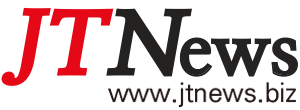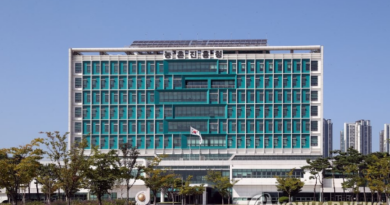(News Focus) Recovery momentum in danger of losing steam amid virus flare-up
(News Focus) virus resurge-economic recovery
By Kim Soo-yeon
SEOUL, July 12 (Yonhap) — The fourth round of the pandemic is posing a challenge to the country’s economic recovery as the toughest-ever virus curbs may dampen improving domestic demand, experts said Monday, casting doubt over whether the South Korean economy can achieve the yearly growth target of 4.2 percent.
The country on Monday began implementing the Level 4 social distancing rules, the highest level in its four-tier scheme, in the greater capital area for two weeks as it grapples with the fourth wave of the pandemic.
The country added 1,100 new COVID-19 cases Monday, marking the sixth straight day of daily new cases topping 1,000. The country set a record high for daily cases on Saturday with 1,378.
Under the strongest virus curbs, private gatherings of three or more people will be banned after 6 p.m. and entertainment establishments, including night clubs and bars, will be ordered to shut down.’

Experts said another wave of the pandemic will inevitably put a damper on domestic demand, which has shown signs of perking up in recent months amid the economic recovery and the vaccine rollout.
“Domestic demand may suffer deep slumps in the third quarter as the Level 4 distancing measures are not likely to be easily lifted,” said Joo Won, chief economist at the Hyundai Research Institute.
“If so, it may be difficult for the Korean economy to grow in the 4 percent range this year,” he added.
Asia’s fourth-largest economy has been on a recovery track on the back of robust exports and pent-up spending. Last year, the Korean economy contracted 0.9 percent.
The country’s gross domestic product (GDP) grew 1.7 percent in the first quarter from three months earlier, accelerating from a 1.1 percent on-quarter gain in the fourth quarter of last year, central bank data showed.
But domestic demand still remains weak compared with pre-pandemic levels as in-person service segments, such as hospitality and retailers, have been suffering an extended slump.
In June, the government unveiled a set of measures to boost domestic demand with the goal of the country pulling off a “complete” economic recovery.
To spur consumption, the government had a plan to provide cash-back rewards for card spending, and resume or newly launch a discount coupon program in six areas, including sports, movies and travel.
But coupon use depends on COVID-19 situations and the speed of vaccinations, and the cash-back reward scheme centers on spending at offline stores run by smaller merchants.
Last month, the finance ministry raised its 2021 growth outlook to a 4.2 percent from its earlier estimate of 3.2 percent, with the expectation that such measures will help stimulate the economic growth.
The government forecast private spending to grow 2.8 percent this year, higher than the Bank of Korea’s estimate of 2.5 percent.
The BOK said in December that private spending could decline 16.6 percent annually and GDP may shrink 8 percent, if the country implements the Level 3 distancing rules, the highest level under the country’s previous five-tier scheme.’

Against this backdrop, calls from the political sector have mounted to revise details of this year’s second extra budget that is currently under review at the National Assembly.
The finance ministry proposed an extra budget of 33 trillion won (US$28.7 billion) in late June to fund another round of COVID-19 aid packages.
Of the budget, the government set aside some 3.25 trillion won to provide emergency relief funds for the self-employed and merchants hit hard by the pandemic.
It also earmarked 600 billion won to compensate small merchants for business losses that will be incurred by state orders for business restrictions.
But a larger than expected amount of money may be needed to support such people as it did not take into account the toughest virus curbs when it drew up the extra budget.
Finance Minister Hong Nam-ki, however, remains cautious about jacking up the size of the proposed supplementary budget, presenting negative views about the possibility for a debt sale to fund a larger extra budget.
The spike in virus cases may prod the BOK to delay the timing of a rate hike, analysts said.
BOK Gov. Lee Ju-yeol recently said the central bank is ready to raise the key interest rate “within this year,” stressing the need to orderly normalize its monetary policy amid the economic recovery.
Still, some experts said even if the Level 4 rules hurt domestic demand, it would not be serious enough to hamper the strong economic recovery momentum.
“The recovery of private spending could be delayed for a few months. But it would not affect the overall upward economic momentum as exports remain robust and the government will create supportive policies with fiscal spending,” said Park Sang-hyun, an economist at Hi Investment & Securities Co.
The country’s exports rose 14.1 percent on-year in the first 10 days of July on the back of brisk demand for chips, autos and petroleum products, according to customs data. Exports extended their gains to the eighth straight month in June amid the global economic recovery.’

sooyeon@yna.co.kr / 연합뉴스
(END)








